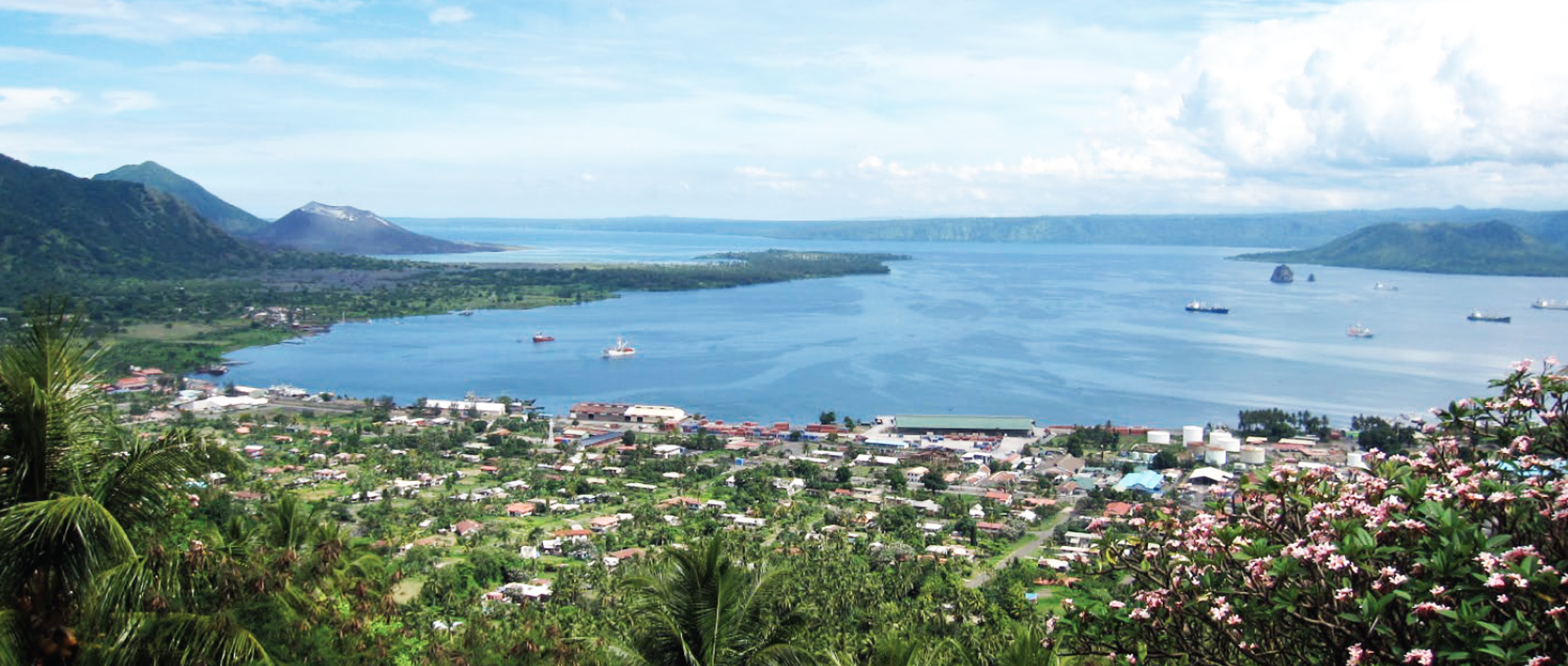
Sydney, Australia, October 28, 2021— Millions of people across the Pacific, including working families and small business operators, stand to benefit from cleaner and more sustainable energy, with an estimated 420 mega-watts of renewable power generation to be added in the next decade.
Research released today by IFC, ahead of the pivotal COP26 summit in Glasgow on how nations plan to tackle climate change, reinforces the challenge facing Pacific nations but also lays out a path forward for helping to reduce emissions and avert a climate disaster. Poorer countries, including Pacific Islands nations, tend to pollute less and are responsible for fewer emissions, yet experience some of the worst effects from climate change including more extreme weather events and the destruction of environments on which their livelihoods depend.
Powering the Pacific, A Guide To Investing In Renewable Electricity Generation In The Pacific, shows the scale of the opportunity. Many people in the Pacific lack access to electricity. Less than a quarter are connected to a grid. While Pacific countries boast an excellent supply of raw materials for renewable energy, more than 40 percent of power generation uses expensive polluting diesel and liquid fuels. This heavy reliance on imported fuel contributes to crippling electricity prices in most countries, often amongst the world's highest.
Most Pacific nations also have ambitious renewable energy targets which need significant investments that are expected to come from the private sector. "At a time when the world is reckoning with the twin challenges of climate change and the COVID-19 pandemic, the private sector has an important role to play in developing climate smart projects, which can help countries transform their economies, free up fiscal space, and avoid a more harrowing future," said Kim-See Lim, Regional Director for East Asia and the Pacific. "With its remote location and considerable developmental needs, the Pacific offers an unparalleled opportunity for energy challenged economies to rapidly adopt renewables, bringing the benefits of cleaner and more sustainable energy to millions of people."
In the Pacific, there are around 40 renewable energy projects which are either already operating, under construction, or planned for the next decade. They will add an estimated 420 mega-watts of renewable generation to the sector. These important projects can ease the fiscal pressure on governments by reducing reliance on imported and expensive energy, in turn freeing up funds for roads, education and health.
"Powering the Pacific sets out an array of exciting commercial opportunities and constitutes a blueprint for responsible and inclusive project development that can be replicated by countries across the Pacific," said Isabel Chatterton, Regional Industry Head for Infrastructure and Natural Resources, Asia Pacific, at IFC. " Looking forward, our renewable energy work in the Pacific offers perspectives on how targeted incentives and smart subsidies from donors and development institutions, paired with private capital and expertise, could help spur renewable energy growth in the Pacific."
Several of IFC's groundbreaking renewable energy transactions in the Pacific have already demonstrated the exciting prospects for the region. In Fiji, an agreement with Energy Fiji Limited for the country's largest solar project could transition 14,000 households to renewable energy and paves the way to significantly reduce Fiji's spend on fuel imports. In Solomon Islands, IFC was the government's transaction adviser for the landmark Tina River Hydropower Project, the nation's first large-scale infrastructure project developed as a Public-Private Partnership. "Tina River effectively changes Solomon Islands' energy source from a virtual 100 percent reliance on imported diesel to about 70 percent renewable energy," said Tom Lubeck, Manager PPP Transaction Advisory Services at IFC.
Powering the Pacific, A Guide To Investing In Renewable Electricity Generation In The Pacific was produced with support from the governments of Australia and New Zealand.
About IFC
IFC—a member of the World Bank Group—is the largest global development institution focused on the private sector in emerging markets. We work in more than 100 countries, using our capital, expertise, and influence to create markets and opportunities in developing countries. In fiscal year 2021, IFC committed a record $31.5 billion to private companies and financial institutions in developing countries, leveraging the power of the private sector to end extreme poverty and boost shared prosperity as economies grapple with the impacts of the COVID-19 pandemic. For more information, visit www.ifc.org.
Stay Connected
www.ifc.org/eastasia
www.twitter.com/IFC_EAP
www.youtube.com/IFCvideocast
www.ifc.org/SocialMediaIndex
www.instagram.com\ifc_org
www.facebook.com/IFCeap
www.facebook.com/IFCwbg
Pacific Partnership
IFC's work in the Pacific is guided by the Pacific Partnership. Australia, New Zealand and IFC are working together through the Partnership to stimulate private sector investment and reduce poverty in the Pacific.
PNG Partnership
IFC's work in Papua New Guinea is guided by the PNG Partnership. Australia, New Zealand and IFC are working together through the Partnership to stimulate private sector investment and reduce poverty in Papua New Guinea.

Contacts
Stay Informed
Sign up to have customizable news & updates sent to you.